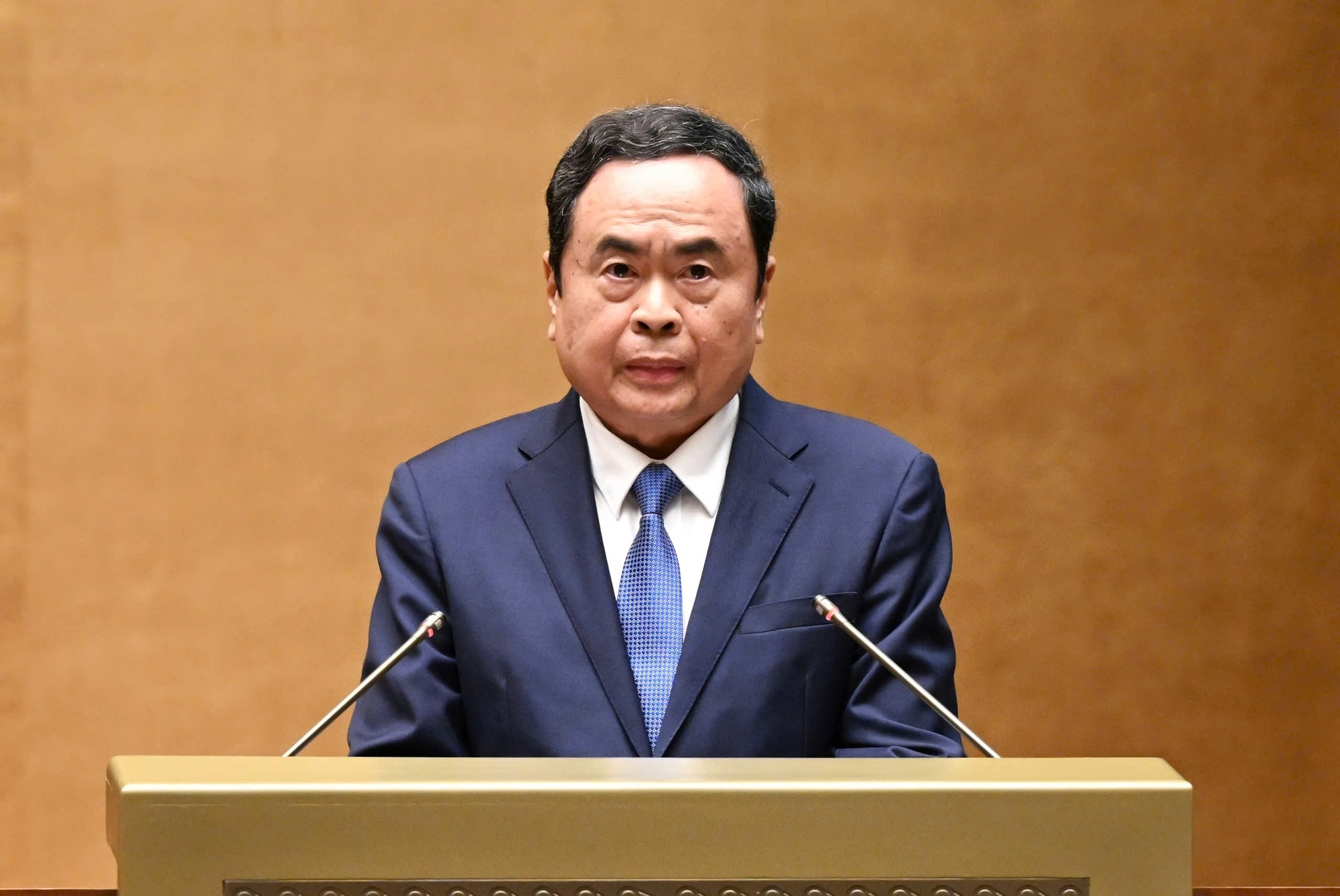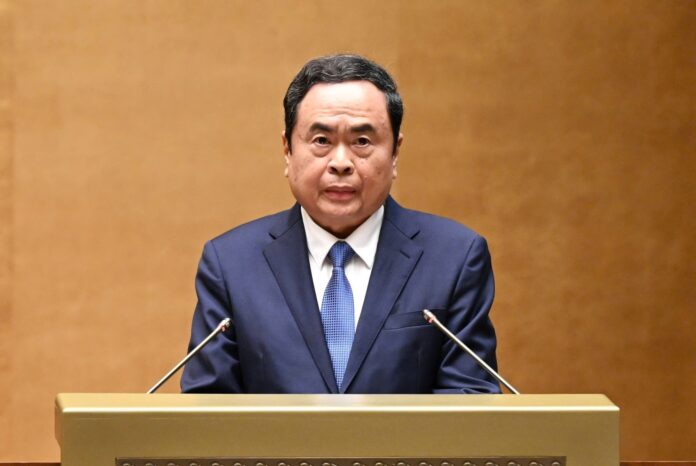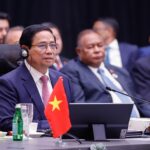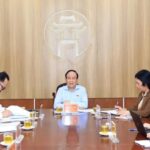
National Assembly Chairman Tran Thanh Man gave a presentation at the National Conference on the promulgation and implementation of Resolution No. 66-NQ/TW – Photo: VGP
|
On the morning of May 18, the Politburo and the Secretariat organized a national conference to promulgate and implement Resolution No. 66-NQ/TW dated April 30, 2025, on innovating the work of building and enforcing laws, and Resolution No. 68-NQ/TW dated May 4, 2025, on developing the private economy.
Speaking at the conference, National Assembly Chairman Tran Thanh Man affirmed that the issuance of Resolution 66-NQ/TW is an objective requirement in the innovation process, aiming to create a breakthrough in improving the quality and efficiency of law-building and enforcement, meeting the development requirements of the new era towards prosperity.
According to Mr. Man, the country is entering a new stage of development, setting higher requirements for the legal system to achieve the goal of becoming an industrialized modern country with high middle income by 2030 and a developed country with high income by 2045. This calls for a modern, synchronous, and feasible legal system.
The Fourth Industrial Revolution, the digital transformation process, the development of a green and circular economy, are posing new and complex legal issues that need to be addressed in a timely manner. Deep international integration, especially the participation in new-generation free trade agreements, also requires domestic laws to be compatible with international commitments and practices.
However, the National Assembly Chairman pointed out that there are still many shortcomings in law-making and enforcement, which have not really become a driving force for innovation and development. “The Resolution is a concretization of the Party’s guidelines and policies on building and perfecting the socialist rule-of-law state of the people, by the people, and for the people, as stated in the Resolution of the 13th Congress and other important resolutions of the Party,” Mr. Tran Thanh Man emphasized.
The Resolution also stems from the urgent need to overcome current limitations, from the need to unlock and release resources for development, and from the legitimate aspirations of the people and businesses for a transparent, fair, and effective legal environment.
Law-making is the “breakthrough of breakthroughs”
Resolution 66-NQ/TW sets out five guiding viewpoints that need to be thoroughly understood and implemented in law-making and enforcement.
First, ensure the comprehensive and direct leadership of the Party in law-making; strengthen the role of the Party in law enforcement; and fully and promptly institutionalize the Party’s guidelines. Law-making and enforcement must balance stability and innovation, reality and development laws, while enhancing control over power and preventing corruption, waste, and vested interest groups.
Second, identify law-making and enforcement as the “breakthrough of breakthroughs” in perfecting the institutional framework. This is a key task, not only for state agencies but also for the entire political system. There must be a comprehensive change in thinking and action, from policy formulation to organization and implementation.
Third, laws must be based on Vietnamese reality and absorb the essence of humanity’s achievements, becoming a solid foundation to promote “double-digit” economic growth, improve people’s lives, and ensure national defense, security, and foreign affairs.
Law-making needs to be closely attached to reality, focusing on summing up, surveying, and assessing policy impacts, fully taking into account contributions, and not creating difficulties for people and businesses.
Fourth, improve the efficiency of law enforcement, build a culture of respect for law, and ensure a close connection between law-making and enforcement.
Fifth, investing in policy and law-making is investing in development. The State needs to prioritize resources and have special mechanisms for policy research, formulation, and implementation.
The Resolution also sets clear mid- and long-term targets. By 2030, Vietnam must have a democratic, synchronous, and transparent legal system, creating a foundation for development. By 2045, a modern and integrated legal system will be built, contributing to Vietnam’s development into a developed country with a high income.
“Vietnam: Forging a Hungary-Southeast Asia Alliance”
During his meeting with Hungarian President Sulyok Tamás, General Secretary To Lam emphasized Vietnam’s commitment to its special relationship with Hungary. He affirmed Vietnam’s willingness to act as a bridge between Central European countries and Southeast Asia, while also exploring new avenues of cooperation in areas such as nuclear energy, defense, and innovation.
“ASEAN: Unleashing the Power of ‘5 More’ with a Triple-Headed Approach”
On the morning of May 26, at the Kuala Lumpur Convention Centre in Malaysia, Prime Minister Pham Minh Chinh led a high-level Vietnamese delegation at the 46th ASEAN Summit’s plenary session.





















